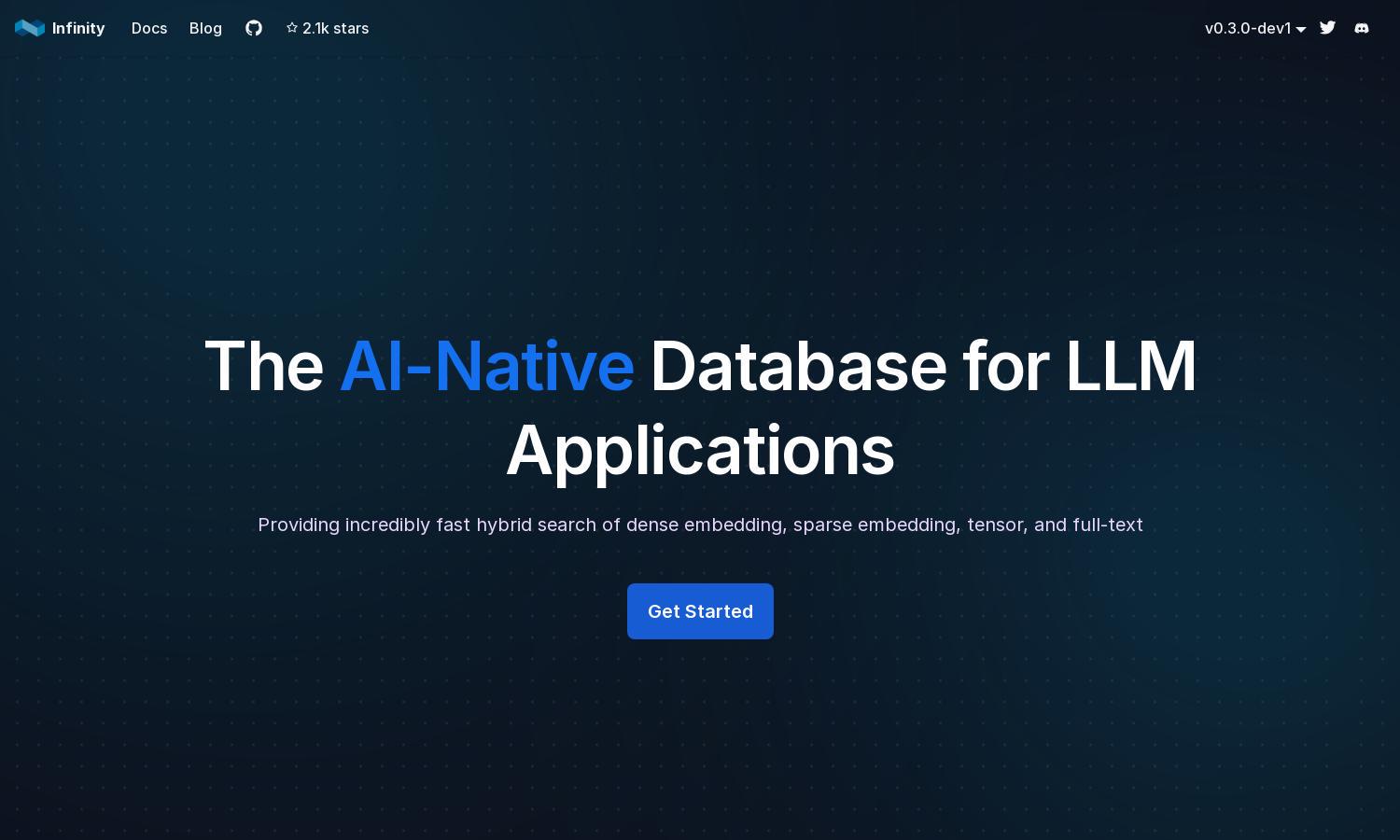Infinity

About Infinity
Infinity is designed for developers and data scientists needing superior search performance for AI applications. With its groundbreaking hybrid search functionality, Infinity allows users to quickly query dense and sparse embeddings, tensors, and full-text data, providing exceptional speed and efficiency in handling complex datasets.
Infinity offers flexible pricing plans suited for various needs. Each tier provides distinct advantages, including premium features and customer support. Higher subscription levels unlock additional benefits, enhancing user experience and search capabilities. Explore the options to find the right fit for your requirements with Infinity.
Infinity's user interface is clean and intuitive, enabling a smooth navigation experience for all users. Its thoughtfully designed layout showcases essential features effortlessly, allowing users to harness the power of hybrid search without any friction. Infinity prioritizes user-friendliness and efficiency in every interaction.
How Infinity works
Users start by signing up for Infinity, where they can easily access the intuitive Python API designed for rapid deployment. Once onboarded, navigating through the powerful features, such as the hybrid search capabilities for dense embeddings and text queries, is seamless. The lightweight architecture ensures users can efficiently manage and query their datasets, paving the way for innovative AI applications with excellent performance.
Key Features for Infinity
Incredibly Fast Query Performance
Infinity's incredibly fast query performance sets it apart, achieving just 0.1 milliseconds query latency on million-scale vector datasets. This exceptional speed allows users to deploy AI applications seamlessly and ensures rapid data retrieval, significantly enhancing application responsiveness and user satisfaction.
Hybrid Search Capabilities
Infinity offers robust hybrid search capabilities, combining dense embedding, sparse embedding, tensors, and full-text search functionalities. This unique feature empowers users to efficiently filter and rerank results, enabling precise and relevant queries on diverse data types, thus enhancing overall search performance.
Intuitive Python API
Infinity features an intuitive Python API that streamlines the user experience, making advanced database functionalities accessible without complex configurations. This eases deployment for developers and encourages quick integration of powerful search capabilities, ensuring that users can focus on leveraging their data effectively.








